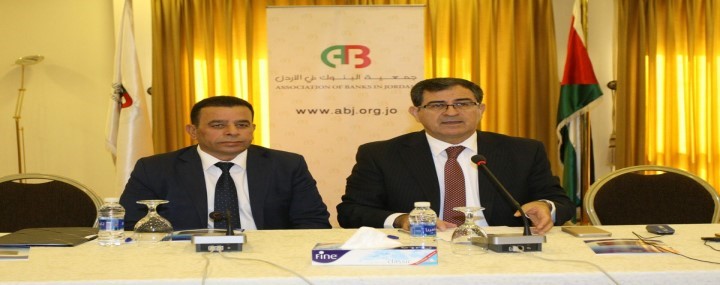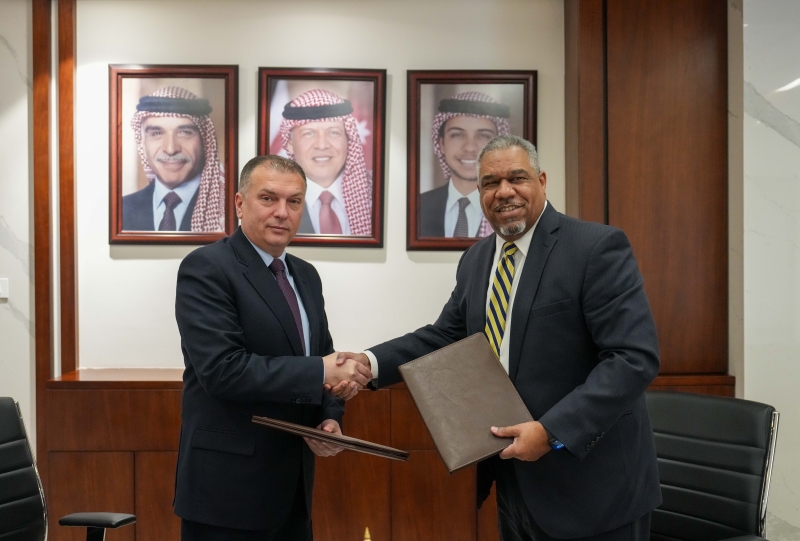
A meeting held at the Association of Banks in Jordan (ABJ) discussed the role of Jordan’s banking sector in financing investment projects in the water sector in light of considerable competition with foreign banks interested in this type of investment.
The meeting came after the publication of an ABJ study on banks that finance projects in the water sector of Jordan, as Prime Minister Omar Razzaz encouraged the Ministry of Water and Irrigation (MOWI) to strengthen the role of the banking sector in taking part in financing future water projects to be implemented in the kingdom.
ABJ General Director, Dr. Adli Kandah, said financing water projects is a top priority to Jordan that receives the interest of all those concerned, especially as Jordan is one of the poorest countries in water resources. This fact of water poverty means that the water sector faces numerous challenges relevant to balancing the limited and under-developed water resources on the one hand, and the increased demand on water for all usages on the other.
Providing the necessary financing to water projects is one of the main pillars of the MOWI strategy for 2018-2020. The strategy aims to provide financing to its priority capital projects in the water sector in cooperation with creditors and donors, to draw the investment map and provide financing to priority capital projects that would help achieve water security.
“Banks fully recognize the gravity of the water issue in Jordan, so they are aware of the importance of studying and identifying the most important challenges of the sector,” Dr. Kandah said.
Therefore, he added, the ABJ took the initiative to study the situation of bank financing projects in Jordan’s water sector. The study was based on a survey of 9 questions on the role of banks working in Jordan in financing water projects in the period of 2013-2017. Eighteen banks out of 25 banks working in Jordan responded, which is 72% of total banks, he said.
The General Director pointed to some important outcomes that could be built upon and developed to increase the financing volume of water projects, thus leading to improving the sector’s performance and achieving the national water security at the medium and long terms.
MOWI Secretary General, Eng. Ali Soboh, highlighted the urgency of water issue in Jordan, as there is a dire need to enhance and diversify water resources in the kingdom.
Soboh told attendees that Jordan suffers from a water deficit of 400 million cubic meters, which forces it to resort increasingly to underground water reserves.
As regards financing the water sector, the secretary general said a lot of major projects are done through big foreign banks that grant loans backed by their governments. There is a number of existing projects that Jordanian banks can enter into in cooperation with other parties, such as the 25 million JD- Husban project that aims to dig wells and desalinate water to provide Amman and adjacent areas with potable water. The project will be implemented on a BOT basis, he added.
Soboh highlighted other mega projects, for example, the second project to bring Dissi water to Amman, and the desalination project of the Red Sea waters whose initial cost is JD 1.4 billion.
The water issue in Jordan is closely linked to that of energy, as the government tends to adopt renewable energy resources in the different processes of water projects, the MOWI Secretary General said.
Banks would be provided with the MOWI investment plan to consider financing what they want, he said.
The ABJ’s study on The Role of Banks in Financing Water Sector’s Projects: The Case of Jordan had recommended the government to guarantee credit facilities granted to projects in this sector, or to provide partial financing to such projects; to refer to the Public- Private Partnership (PPP) basis; to grant incentives and tax advantages to banks; and, to commit to pay the contractors’ dues on time.
The study further called on the CBJ to be more flexible as regards lending in foreign currencies to water projects, and to create ad hoc programs or agreements to support the water sector. It also encouraged donors and supporters, especially international institutions, to provide financial and technical support and to provide guarantee programs to credits granted to projects in the water sector.
In addition to that, the study demanded that project developers and contractors increase the volume of their down payment and to lay down a clear structure for project implementation to be financeable.
Representatives of member banks attending the meeting highlighted obstacles facing financing water projects, especially as regards pricing, the volume and term of financing, and the risks relevant to those projects.
Further, they underlined the necessity of having greater roles for the Ministry of Finance and the CBJ in supporting financing, especially as the water projects require international cooperation and the presence of supportive international institutions.





